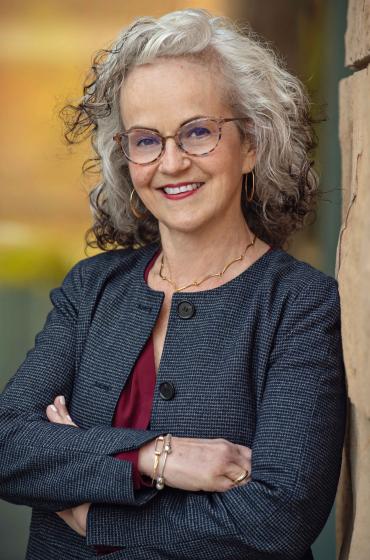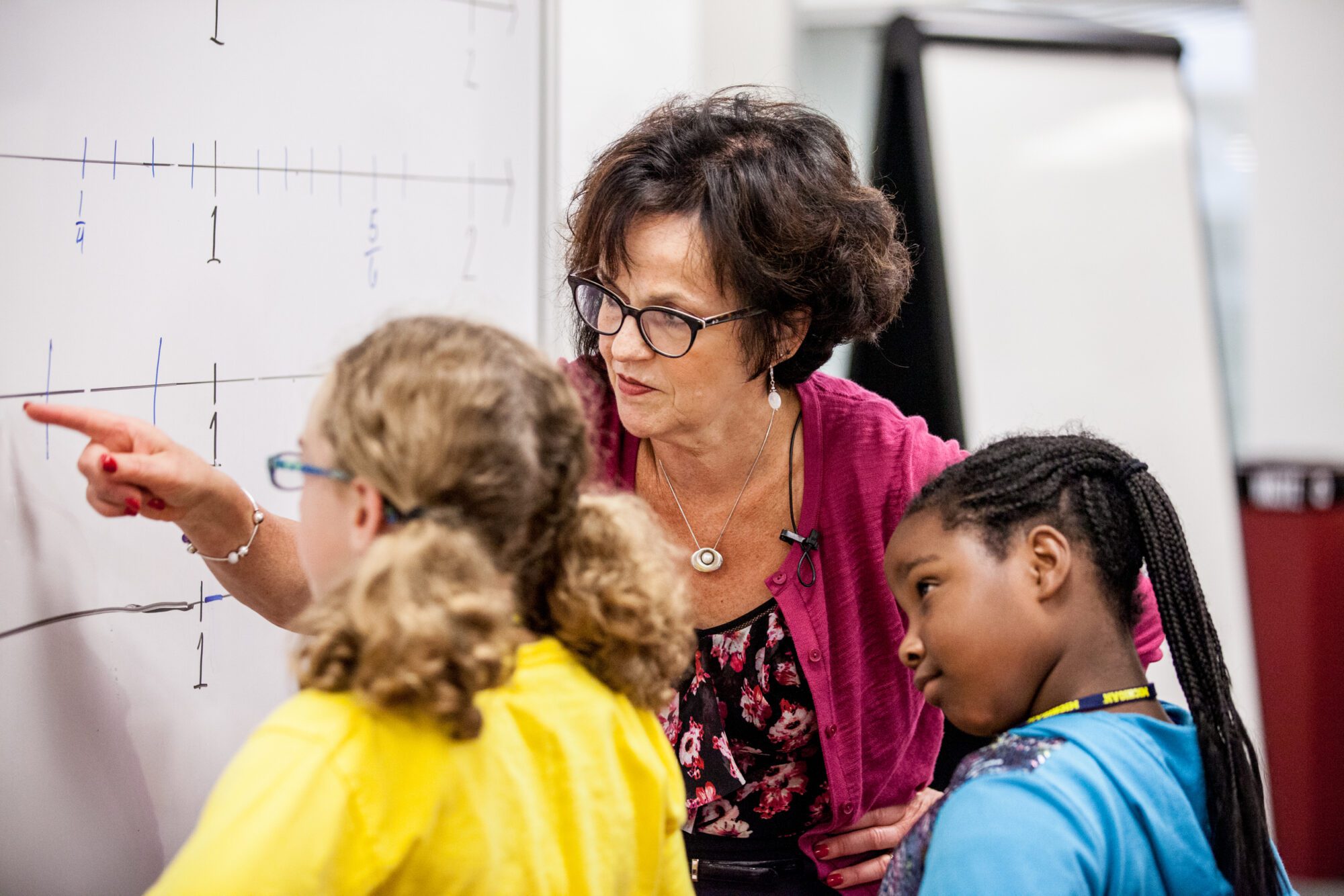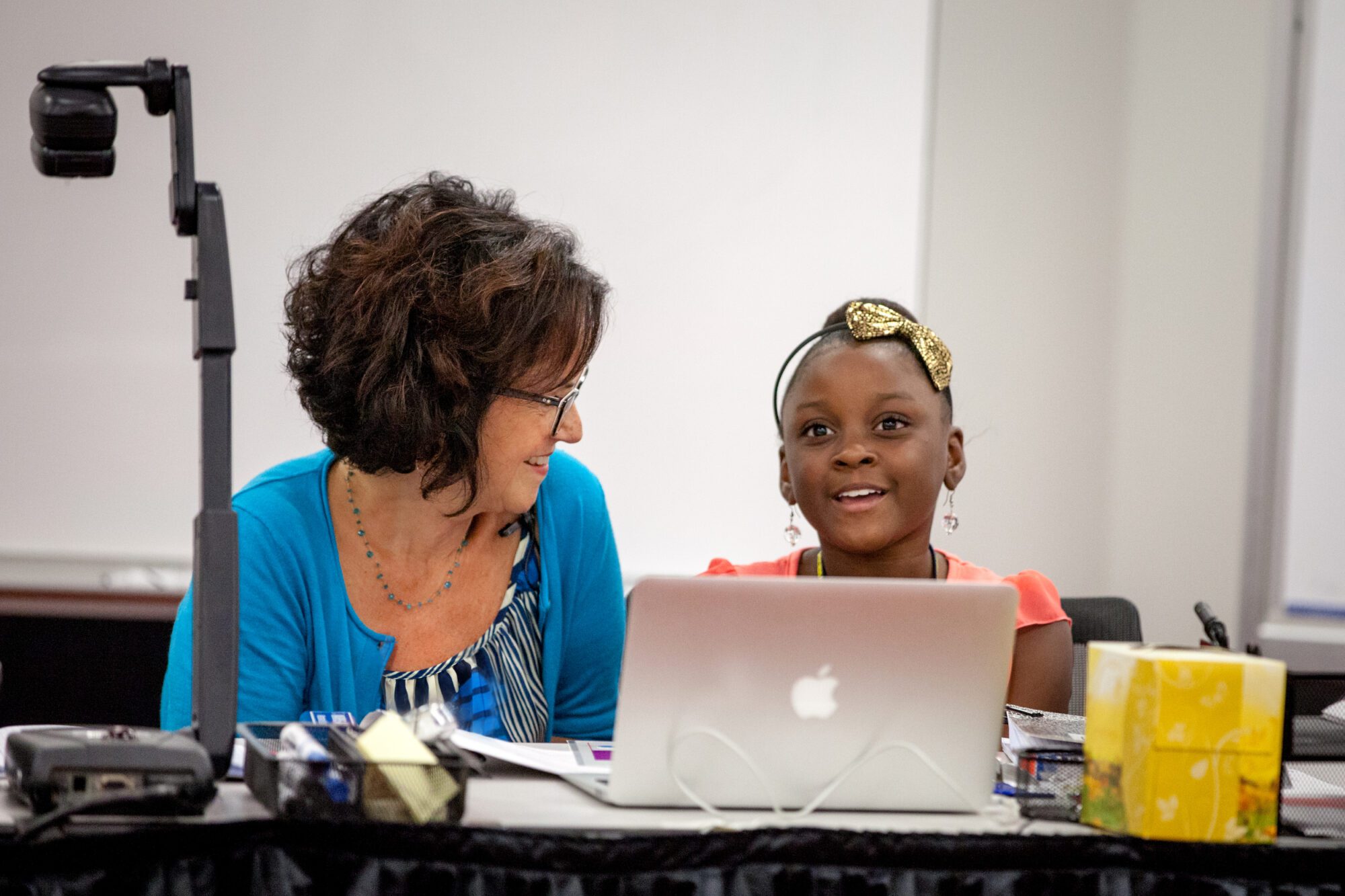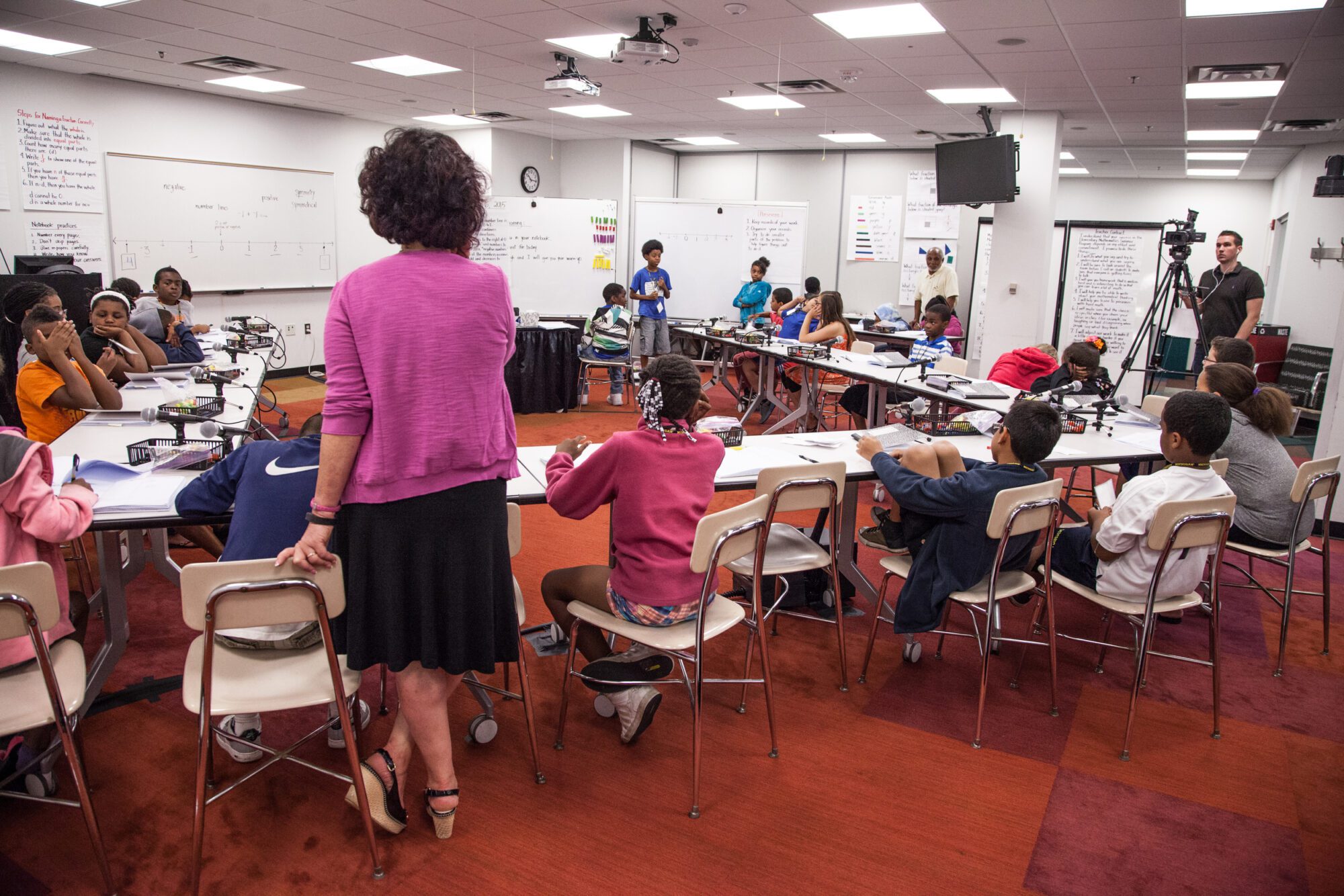Deborah Loewenberg Ball
Dr. Deborah Loewenberg Ball, William H. Payne Collegiate Professor of Education at the University of Michigan School of Education, has been appointed to the National Science Board by President Joe Biden. To celebrate International Day of Women and Girls in Science and the incredible impact and importance of women researchers across the University of Michigan, Ball discussed what motivated her to study education and how her leadership style has been influenced by her experiences as an elementary school teacher, research professor, and dean.

Deborah Loewenberg Ball, William H. Payne Collegiate Professor of Education at the University of Michigan School of Education, has been appointed to the National Science Board by President Biden. The National Science Board is responsible for guiding the work of the National Science Foundation (NSF) and ensuring that the Biden-Harris Administration continues to leverage science and technology to benefit all Americans.
As Director of TeachingWorks, a center based at the School of Education, Ball’s work focuses on using the power of teaching to disrupt patterns of racism, marginalization, and inequity. She has authored more than 200 articles and chapters in various scholarly works and has previously served as the President of the American Educational Research Association and as Dean of the University of Michigan School of Education. Ball also served on the National Science Board from 2013 to 2018.
Ball discussed what motivated her to study education and how her leadership style has been influenced by her experiences as an elementary school teacher, research professor, and dean.
What motivated you to enter the field of education?
I realized that education was one of the main ways you could be actually making a contribution to society because education was the only profession that touches every single person. I was already aware that teaching could do terrific harm to lots of young people, but it could also be a real accelerator and really create good for students and young people in our society.
I became motivated by the social value of it, and also not having to pick a single field to specialize in, in terms of a disciplinary subject, and I thought I would always be learning more about content, which turned out to be completely true.
What is your favorite part about working as a research leader within education?
Many people outside of the field of education don’t really understand what research in education is, and I find it very interesting to try to describe it and how it’s related to other areas of research, but how it’s also distinct.
One way to think about that would be to consider what might not happen on the University of Michigan campus if we didn’t have a School of Education. What kind of research would happen that’s related to education, and what wouldn’t? And who would we not be granting PhDs to if we didn’t have a School of Ed?
The other part of the work which I find fascinating, having been a practicing educator all of my career, is advancing what it is that research can contribute to practice. And what the relationships between practice and policy are, and between practice and research in education. And that continues to be an interesting thing to work on and to think about within my own field and related fields.

What does being appointed to the National Science Board mean to you?
It’s a terrific honor. Most of the people appointed to the board are in the hard sciences. Sometimes there are mathematicians and there are occasionally people who work more in the social behavioral and economic sciences, because that’s one of the areas within the National Science Board, but my role as somebody who does research in education and who’s a social scientist, is important because of what many people assume. Many of the other Board members do research on physics and astronomy, chemistry, and so on, which are very important, but this is an opportunity to build the conversation among fields. So it’s a great honor, as somebody who does research in mathematics education and teacher education, to have an opportunity to link those fields with other areas of science.
It’s also very interesting, because the National Science Board, together in relationship with Congress, makes allocations of funding for research. Being part of the conversation, or even part of the communication and education of people who make those decisions, allows me to make a particular kind of contribution, along with my colleagues on the Board, because of the kind of work that I do.
And so we’re working together with other people to figure out how to advance funding for important research in our country. It is an important opportunity.
Between your many different roles within and outside of U-M, you have a lot of different responsibilities. How do you choose which roles to prioritize at different times throughout your career?
My foundation as an actual public elementary school teacher grounded me in a way of seeing the world that really grows out of teaching and learning.
Being a leader, I see through the lens of being a teacher in how you communicate and attune yourself to other people. That’s all fundamental to the work of teaching, and those kinds of dispositions and skills apply, across everything.
When I was the dean of the School of Education, that background was incredibly important in terms of thinking about how you bring faculty together, and how you bring a community together within a school or a college. All of that really grows from the background I have as a teacher, so for me, in some ways, I’ve been in the same career all my life, though if you look at my CV, I’ve been doing very different things.
How does your background in elementary education affect your leadership style?
Although our society often doesn’t take teachers very seriously, their work is all about bringing together people who are different from each other, getting people to figure out what it actually means to respect other people, learning to see themselves as valuable, and learning to work collectively.
Those are all skills that teachers have to use all the time. And they’re somewhat in short supply, sometimes in other contexts. And so I do feel like it was extremely helpful.

What advice would you give someone starting out in education or science?
One thing I would say is to always be learning. Try to consider places to be learning, or sources, or people to be learning from that aren’t obvious.
And communication skills are probably fundamental to almost anything. For a long time, I was really interested in how people figure out how to talk to someone who doesn’t share the same background as they do. And I’m still interested in that, but I think the first step might be actually listening attentively. In the research I’m doing right now, we’re actually trying to study what that looks like in classrooms, and what it takes to learn to do that better. And that’s been very interesting because teaching seems to be about telling but it actually starts with being about listening.
What do you hope the future impact of some of your current work, whether it’s in relation to the National Science Board or any current research projects, might be?
I hope we’ll see a much broader range of people participating in all of these fields. There are really astonishingly few people of color in these fields. And that’s important because it matters who’s actually making and doing science and mathematics and education research because our knowledge is actually limited by who’s been doing the research.
We have wonderful things going on all the time, but being a leader in any domain means having the responsibility of being vigilant about who’s being asked to do things, whose work is being featured, what programs we sponsor that we know can actually bring more people in.
And that is not necessarily bringing them into science and math as we know it now, but being open to the idea, and there is a lot of evidence of this, that when you broaden who’s doing math and science, engineering or education research, or any of these fields, knowledge actually changes because the people you’re encouraging to do the work know things and have experiences that are not currently being prioritized or valued.

What does it mean to you to be a leader within your area of research?
Having the platform as a leader means that I can think very carefully about what I’m saying and doing, whom I’m lifting up, how I’m sharing that role with other people. A leader can actually be somebody who’s helping to make things happen, which again goes back to being a teacher. I think the best teachers aren’t people who are stars in their own classrooms; they’re people who are advancing the people they’re teaching.
Being a leader is really about considering, how does the stage that I’ve been privileged enough to be invited to be on, how do I actually change who gets invited to be there?
Is there anything we missed that we should include in this conversation?
If there’s a business the University of Michigan is in, it is the business of education. And so, being a person who does research in education is a funny place to be.
Education research has everything to do with this campus, but because education is the water we’re all in, it can be difficult for people to understand there is such a thing as research on these things. For us to succeed we have to be constantly improving what it means to be an educational enterprise.
